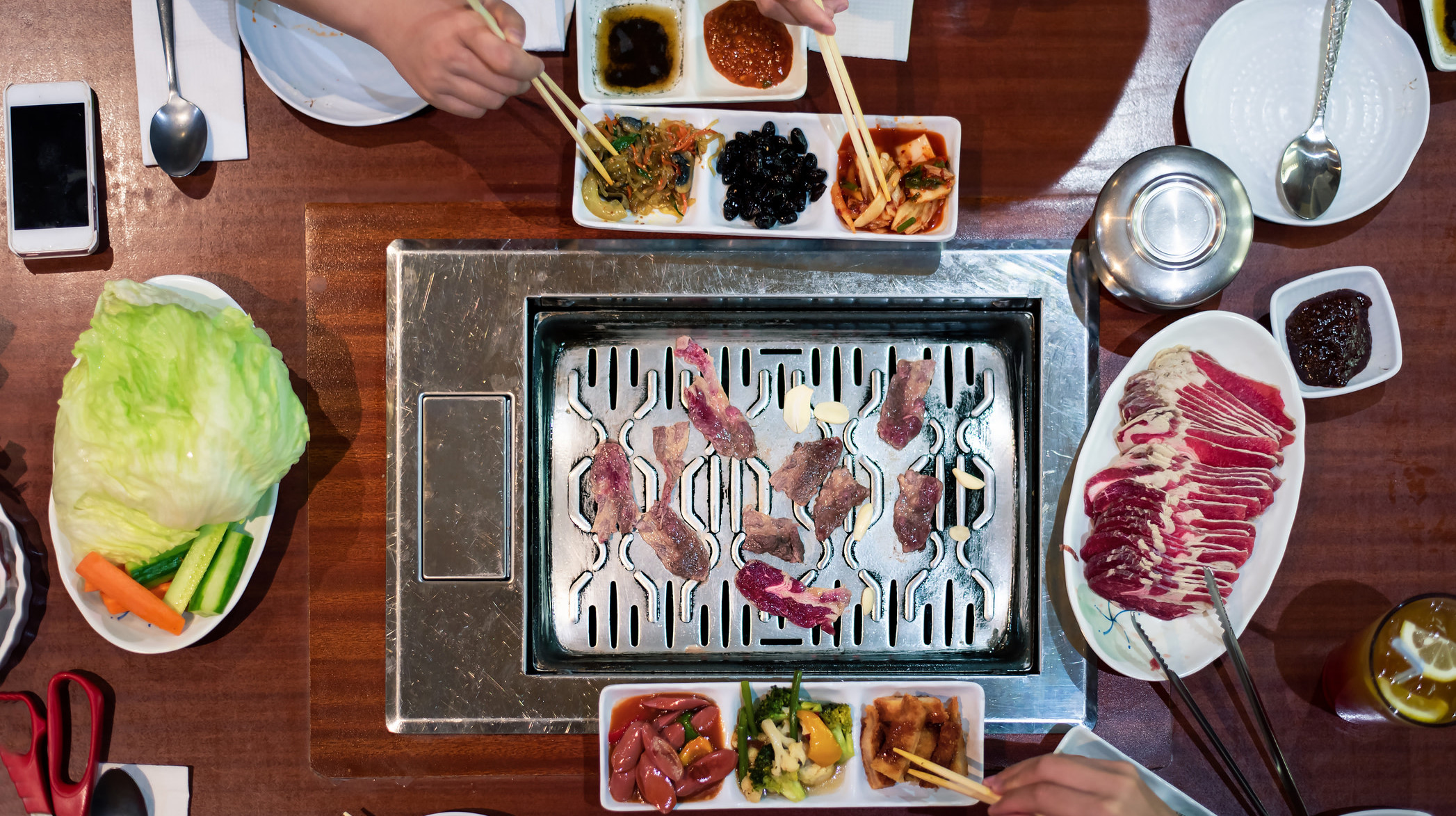How Is Char Kol, A New Philly Korean BBQ Pop-Up, Offensive? A Critic Counts The Ways
It's been a super-long year, but does anyone remember Lucky Lee's, the "clean" Chinese restaurant that opened in Manhattan in the spring of 2019, ignited controversy for cultural appropriation (its owner was white) and for implying that other Chinese food is dirty, and then closed eight months later? Or the Alison Roman "Stew" recipe that many South Asian food mavens argued was actually curry? Both those things—plus the endless conversations this summer about the editorial changes at Bon Appetit and the collapse of its popular YouTube channel—should have served as a lesson for food people, especially those who are cooking food from cultures they don't know well. But now in Philadelphia, restaurateurs Michael Schulson and Nina Tinari have opened a "Korean BBQ" pop-up called Char Kol. Which, Philadelphia magazine critic Alex Tewfik writes in a piece called "How Does a Restaurant Like This Happen in 2020?," they have every right to do. But the way they have done it is so disrespectful, he felt it deserved comment.
First of all, Tewfik points out, Char Kol is not a Korean word. (Though at least it doesn't have an embarrassing translation.) Yes, yes, he understands that it refers to the decision to use charcoal-heated tabletop grills instead of propane. "But the decision to caricaturize the word, to make it two words and less ... English for no reason other than some vaguely non-American mystique, is most telling of the restaurant's motive and creation," he writes. "Char Kol is the physical manifestation of a food trend, respect to the culture it banks on be damned."
Char Kol is decorated with Sapporo beer umbrellas and paper lanterns decorated with cherry blossoms, and the menu includes gyoza, all of which are... Japanese. Whole other country. It serves a drink called the Silk Road, named after a medieval trade route that extended from the Middle East to China but never reached Korea. There appear to be no Korean staffers.
The pop-up has attracted plenty of complaints on its Instagram page and one in-person protestor, a Korean-American former restaurant worker named Hemi Park who stood outside Char Kol with a sign that read "MY CULTURE ISN'T YOUR ACCESSORY." In a telephone interview, she explained to Tewfik that the food itself is neither authentically Korean nor innovative fusion, just "watered-down Korean food for white comfort and white taste buds." Park is particularly angry to see that the same foods she was mocked for eating as a kid—kimchi, gochujang—have become trendy and profitable once they were "discovered" by white people.
Tewfik observes that Schulson in particular is a product of the early 2000s dining scene that made stars out of white chefs and restaurant owners. "He made a name for himself at Stephen Starr's Buddakan, a restaurant that is, by today's standards, a culturally appropriative nightmare, then went on to launch his own empire filled with Asian-fusion-y darlings." Char Kol is a natural outgrowth of this, but Tewfik believes it shows a vast misreading of this particular cultural moment.
That's not to say there are clear answers to all this. I'm not sure I'm comfortable living in a world where people aren't fully free to cook the food and amplify the cuisines that interest them, no matter where they're from. But I know that doing so comes with some responsibility to give agency and voice and power to the people and communities you're profiting from. Schulson and Tinari certainly aren't opposed to partnership and collaboration. I wonder what Char Kol might have looked and tasted and felt like if a Korean chef or partner was calling some of the shots.
These are all things worth considering as we continue to talk about the disproportionate amount of power and influence that's been given to white chefs, writers, and editors, and we try to think of ways to move forward.
